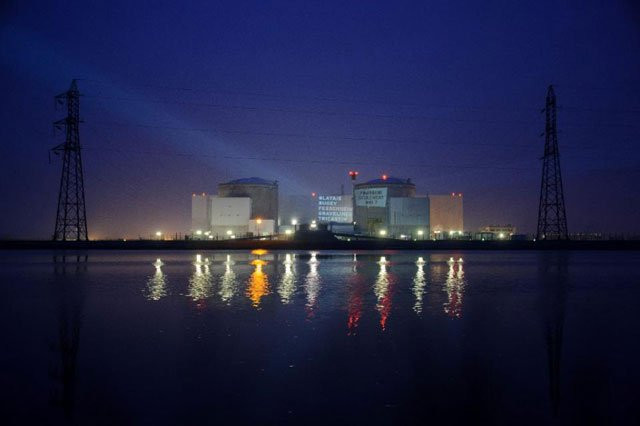World must do more to curb nuclear terror threat: watchdog
The NTI Index also finds worrying shortfalls in how well countries protect their nuclear facilities

NTI Index finds worrying shortfalls in how well countries protect their nuclear facilities against potential sabotage and cyber attacks. PHOTO: AFP
The Nuclear Threat Initiative, a leading US nonproliferation watchdog, found that even as international security has been rocked by one crisis after another, basic weaknesses persist in securing the world's fissile materials.
Iran to sell heavy water to US under nuclear deal
"The current global nuclear security system has dangerous gaps that prevent it from being truly comprehensive and effective," NTI President Joan Rohlfing said in a statement.
"Until those gaps are closed, terrorists will seek to exploit them."
World leaders are due to meet from March 31-April 1 in Washington for the fourth and final Nuclear Security Summit under the administration of President Barack Obama.
"Leaders must commit to a path forward when they meet this spring," Rohlfing said.
Russia to start building two nuclear reactors in Iran
"The consequences of inaction in the face of new and evolving threats are simply too great."
Since 2014, there have been no improvements in several areas related to securing highly enriched uranium and plutonium, the NTI said.
"The number of countries taking the most important step to prevent theft - eliminating their materials - also has dropped," NTI noted.
In the two years ahead of releasing its prior report in 2014, seven countries eliminated their weapons-usable nuclear materials.
But in the run-up to the 2016 edition of its Nuclear Threat Index, only one country -- Uzbekistan -- has been scratched from the list of countries with weapons-usable nuclear materials.
The NTI Index also finds worrying shortfalls in how well countries protect their nuclear facilities against potential sabotage, as well as from cyber attacks.
Israel joins condemnation of North Korea nuclear test
The report warns many countries considering nuclear power are struggling to implement even basic measures to prevent sabotage that could lead to a radiological spill similar in size to Japan's 2011 Fukushima disaster.
Twenty countries "do not even have basic requirements to protect nuclear facilities from cyber attacks," the findings state.
Among several suggested improvements, the NTI recommends the creation of international norms around nuclear security, as well as improved cyber security measures.



















COMMENTS
Comments are moderated and generally will be posted if they are on-topic and not abusive.
For more information, please see our Comments FAQ